Devin: What do you see as your superpower?
Paoola: I think my superpower has always been I have felt this need to use my skills and experience in service to others.
Paoola Sefair is a cancer survivor who used her experience to build an app to make the cancer journey a bit more tolerable, enabling patients and caregivers to coordinate support more effectively. She calls her app and her enterprise My CareCrew.
Paoola’s Cancer Journey
“My cancer journey started out as a simple, “‘Oh, I can't swallow,’” Paoola says. When the problem recurred, she decided to get checked out. On New Year’s Eve, she saw a doctor who performed an ultrasound.
She returned on her birthday, January 4th, to get the results. “I remember I had my son with me at the time,” She says. “He was a year and a half old at the time. He was sitting on my lap. The doctor comes in. No, ‘Hello.’ Nothing. He's like, ‘Oh, kiddo, it's cancer.’”
“I remember, after that moment, I just—I didn't even hear whatever else the doctor said,” Paoola says. “I just remember holding my son and thinking, like, ‘Am I going to see him grow up? Am I going to be around to see him get married or go to school and all these things?’”
“That turned into a five-year ordeal of surgeries and radiation and more surgeries,” she says. “Luckily, now I'm doing much better.”
In some ways, however, the cancer journey is neverending. “You still have—every six months, every nine months or every year—checkups,” Paoola says. “It's like that constant reminder. Is this year going to be the year they're going to tell me it's back?”
My CareCrew’s Development
Paoola had a friend, Agnieszka, from work at Cisco who had cancer recur just before COVID struck.
By virtue of her experience with cancer, their mutual friends designated Paoola as the care coordinator, saying, “Okay, you know what she's going through. So you tell us what to do and how do we be there? How do we [help]? What do we do? What do we say? When do we say it? How do we say it? What do we send?”
Paoola did her best.
When Anushka recovered enough to have this conversation, Paoola broached the subject.
“I said, ‘You know, I have to tell you that I don't know if I was a good friend to you during your treatment,’” she said to Anusha. “‘I thought that I would do a good job because I was also a cancer patient. And then I realized how this experience is so personal to each person, and we all react and cope so differently.’”
Not only did they have a thoughtful discussion, but they began to have these difficult conversations with other cancer survivors.
“One day, we were talking, it's like, ‘What if we do something about this. What if we figure out a way to make it easier for patients to get a little bit more control over their experience during this treatment process and to give them a little bit more control of who comes into that inner bubble and how much they come into that bubble,’” Paoola says.
From that genesis, Paoola led the development of the My CareCrew app.
The Power of My CareCrew
The power of My CareCrew is found in the understanding that for patients, it is difficult to say, “This is what I need. I don't need what you're offering me, but this is what I would need instead.”
She designed the app to make difficult conversations easier so that patients get the help they really need and friends have meaningful opportunities to provide needed support.
“There are two sides to the app. One is the patient or a caregiver side, and then one is the friend and the family side,” Paoola says. The friends and family become the CareCrew.
“What we found with patients was that they would say, ‘I just wish people would tell me how they can help me but be specific,’” she says. A friend who offers to help via the app can be more precise. For instance, they can offer to do grocery shopping on Monday, Tuesday or Wednesday or to babysit at specific times on specific days.
The app also helps with a wishlist. Paoola recalls one patient saying, “I don’t need flowers. I just need a walker.”
Another said, “I didn't need things, but I wanted somebody to take me for a walk because I couldn't go on walks by myself anymore. And I really miss my walks.”
Many cancer patients can quickly return to work but may not be able to engage at the level they could before cancer. Paoola created the app to coordinate with friends from the workplace as well, allowing them to help pick up any slack.
The cancer journey doesn’t end with the final treatment.
“The hard part of cancer is actually after you're done with the surgeries and the treatment, and then you're coming back to life,” Paoola says. “When you start to deal with all the PTSD and all the trauma and all the emotional aspects of cancer, and people don't see that.”
Paoola created My CareCrew to provide that needed emotional support after treatment ends.
Throughout this effort, Paoola leverages her superpower, a fundamental desire to help others.
How to Develop a Desire to Serve Others As a Superpower
It may be tempting to assume that a genuine desire to serve others is a natural gift that can’t be learned or acquired. Paoola thinks otherwise. Choosing to gain a global perspective can help.
She explains how she strengthened her desire to serve others and how it may help others do the same.
I've been very fortunate with my career that it took me to places that I could only dream of. We we spent time in South Africa. We spent time in countries that you have an opportunity to go to the parts of the world that are underdeveloped, that are in need of a lot of help. I think once you get to see that firsthand and you get to experience what life is for somebody else, then you get to walk in their shoes.
She adds, “If I could, I would take everybody around the world and show them like, this is what life is for other people.”
“I plan to do that with my son once he gets a little older,” Paoola says. Thinking of what she’ll tell him then, she says. “This is reality for that child every day. Compare that to your reality. What are you going to do about it?”
By accepting Paoola’s challenge to meaningfully observe the life experience of people who may be less fortunate, you can develop empathy and compassion. Channel them into making the desire to serve others a superpower that will enable you to do more good.


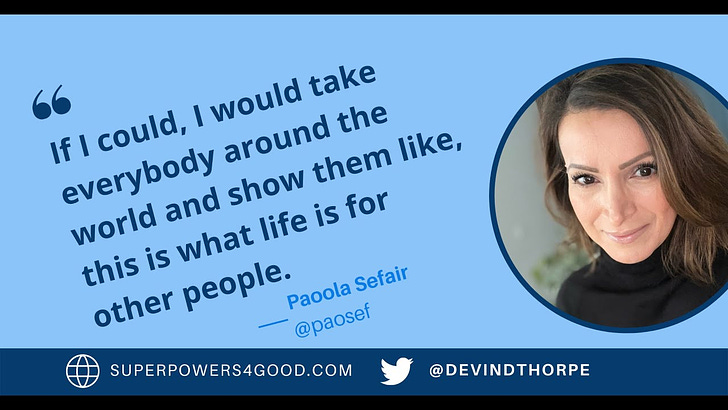



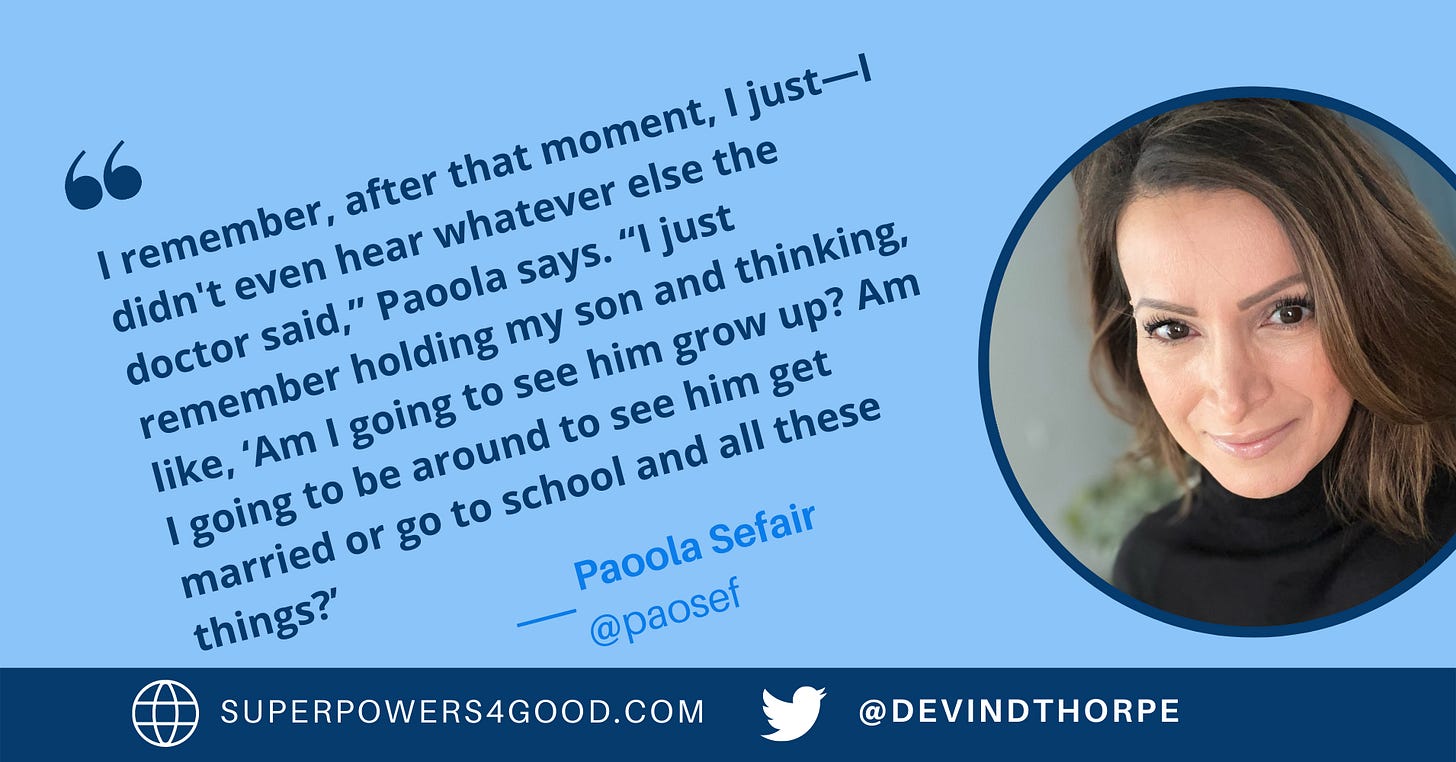

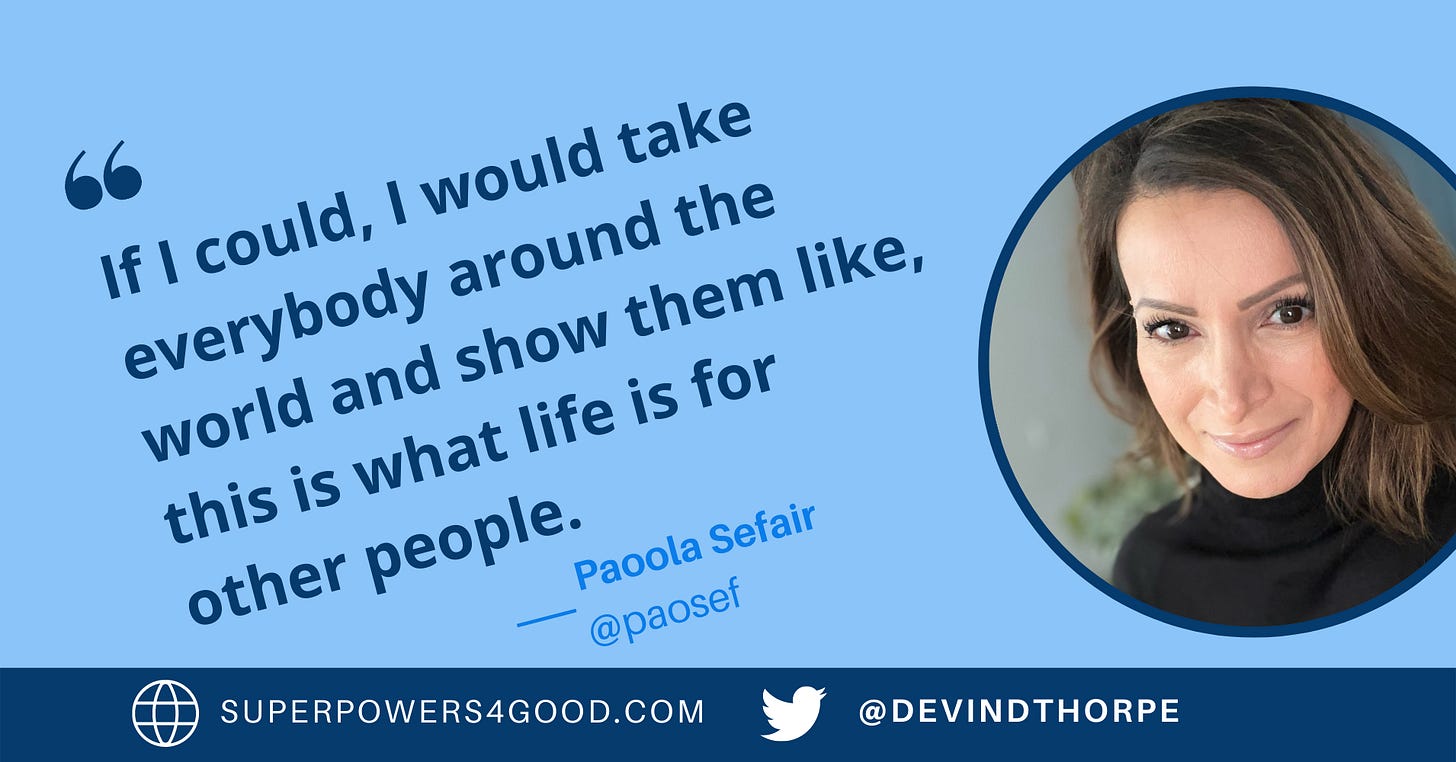



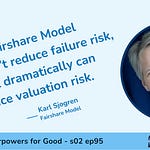


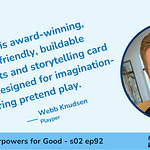


Share this post